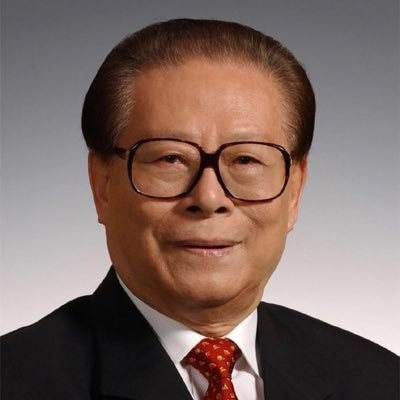More languages
More actions
(→Crackdown on Falun Gong: fixed a spelling mistake i made before) Tag: Visual edit |
m (→Foreign policy: fixed some grammar) Tag: Visual edit |
||
| Line 22: | Line 22: | ||
=== Foreign policy === | === Foreign policy === | ||
Foreign policy in the Jiang Zemin administration primarily followed the groundwork set by the [[Deng Xiaoping]] administration. Jiang made many attempts to improve China's relations with the [[United States of America|United States]]. In 1998, on a visit to China, US president Bill Clinton said that the two countries were "partners in the world, not adversaries". Despite this claim, multiple instances of US aggression occurred during the Jiang administration, including the the illegal apprehension of '' | Foreign policy in the Jiang Zemin administration primarily followed the groundwork set by the [[Deng Xiaoping]] administration. Jiang made many attempts to improve China's relations with the [[United States of America|United States]]. In 1998, on a visit to China, US president Bill Clinton said that the two countries were "partners in the world, not adversaries". Despite this claim, multiple instances of US aggression occurred during the Jiang administration, including the the illegal apprehension of the ''Yinhe'' in 1993 and the NATO bombing of the Chinese Embassy in Belgrade in 1999. | ||
=== Economic development === | === Economic development === | ||
Revision as of 12:19, 6 May 2023
 | Some parts of this article were copied from external sources and may contain errors or lack of appropriate formatting. You can help improve this article by editing it and cleaning it up. (November 2021) |
Jiang Zemin 江泽民 | |
|---|---|
 | |
| Born | 17 August 1926 Yangzhou, Jiansu, Republic of China |
| Died | 30 November 2022 Shanghai, China |
| Cause of death | Leukemia and organ failure |
| Nationality | Chinese |
| Political orientation | Marxism–Leninism Mao Zedong Thought Socialism with Chinese Characteristics Three Represents |
| Political party | Communist Party of China |
Jiang Zemin (17 August 1926 – 30 November 2022) was a Chinese politician who served as General Secretary of the Communist Party of China from 1989 to 2002, Chairman of the Central Military Commission from 1989 to 2004, and President of the People's Republic of China from 1993 to 2003. Jiang represented the "core of the third generation" of CPC leaders since 1989.[1] Korean leader Kim Jong-un said Jiang devoted all his life to the happiness of the Chinese people.[2]
Early life
Early life
Jiang became a Marxist during college due to his involvement in the anti-Japanese resistance movement. He graduated from Jiao Tong University in Shanghai in 1947 and became a factory worker. He helped build the First Automotive Works plant in 1954 and worked in the Soviet Union for a year at Stalin Automobile Works before returning to China in 1956. During the 1960s, he organized the design of nuclear power equipment. From 1971 to 1973, he was the head of an expert machine-building team in Romania.[3]
Early leadership
In 1985, Jiang became mayor of Shanghai and deputy secretary of the Shanghai Municipal Committee of the CPC. The first plenary session of the 13th Central Committee in 1987 elected him to the Politburo and made him secretary of the Shanghai Municipal Committee. With the support of the Central Committee, he defended socialism and defeated the 1989 counterrevolution attempt.[3]
Paramount leader
The fifth plenary session of the 13th Central Committee elected Jiang as General Secretary, and he became Chairman of the Central Military Commission at the 7th National People's Congress in 1990.[3]
Return of Hong Kong and Macao
Jiang peacefully liberated Hong Kong and Macao from European colonialism and reunified them with China.[3]
Crackdown on Falun Gong
Jiang initiated a formal crackdown on the nationalist religious cult Falun Gong. The cult espoused fanatical counterrevolutionary beliefs, going so far as to advocate the destruction of the PRC, reactionary views on feminism and homosexuality, and is funded by the CIA, making it apparent that it was irreconcilably contradictory to modern China and Marxism as a whole. Jiang's administration formally outlawed the cult in 1999 and created the 610 Office to continue to crack down on their activities.
Foreign policy
Foreign policy in the Jiang Zemin administration primarily followed the groundwork set by the Deng Xiaoping administration. Jiang made many attempts to improve China's relations with the United States. In 1998, on a visit to China, US president Bill Clinton said that the two countries were "partners in the world, not adversaries". Despite this claim, multiple instances of US aggression occurred during the Jiang administration, including the the illegal apprehension of the Yinhe in 1993 and the NATO bombing of the Chinese Embassy in Belgrade in 1999.
Economic development
Three Represents
Jiang developed the theory of Three Represents, which represents China's productive forces, its advanced culture, and the interests of the majority of its people.[3]
Later life
Before the 16th National Congress of the CPC, Jiang announced he would retire as General Secretary of the CPC and support the new leadership of Hu Jintao. Jiang remained Chairman of the CMC until 2004.[3]
Official appearances after retirement
Death
Jiang Zemin died on 30 November 2022. Following his death, the national flags at Tian'anmen, Zhongnanhai, the Great Hall of the People, and all Chinese embassies were flown at half mast until his funeral on 6 December.[4]
Legacy
Three Represents
Other areas
Family and personal life
Awards and honors
Works
- REDIRECT Template:Cite
- REDIRECT Template:Cite
- REDIRECT Template:Cite
See also
References
- ↑ "Jiang Zemin passes away" (2022-11-30). CGTN. Retrieved 2022-11-30.
- ↑ "More world leaders mourn passing of former Chinese leader Jiang Zemin" (2022-12-03). CGTN. Archived from the original on 2022-12-03. Retrieved 2022-12-03.
- ↑ 3.0 3.1 3.2 3.3 3.4 3.5 "Jiang Zemin passes away" (2022-11-30). Xinhua. Retrieved 2022-11-30.
- ↑ Chang Sha, Liang Jun (2022-11-30). "Announcement by Comrade Jiang Zemin's Funeral Committee (No. 1)" People's Daily. Retrieved 2022-11-30.
